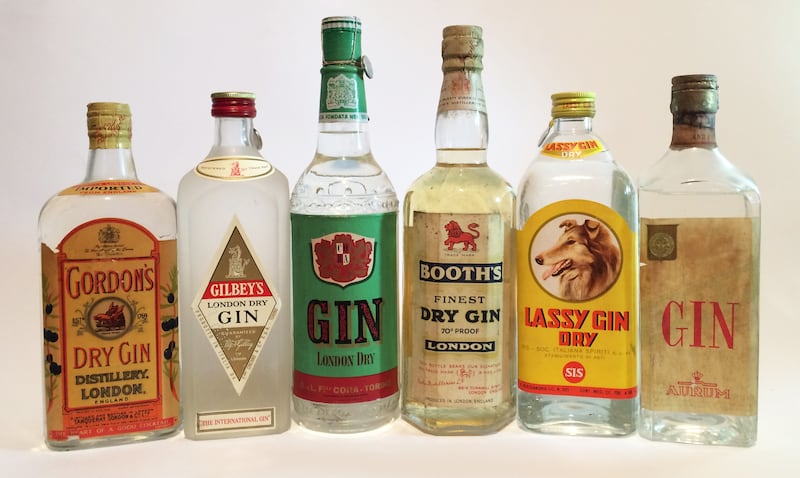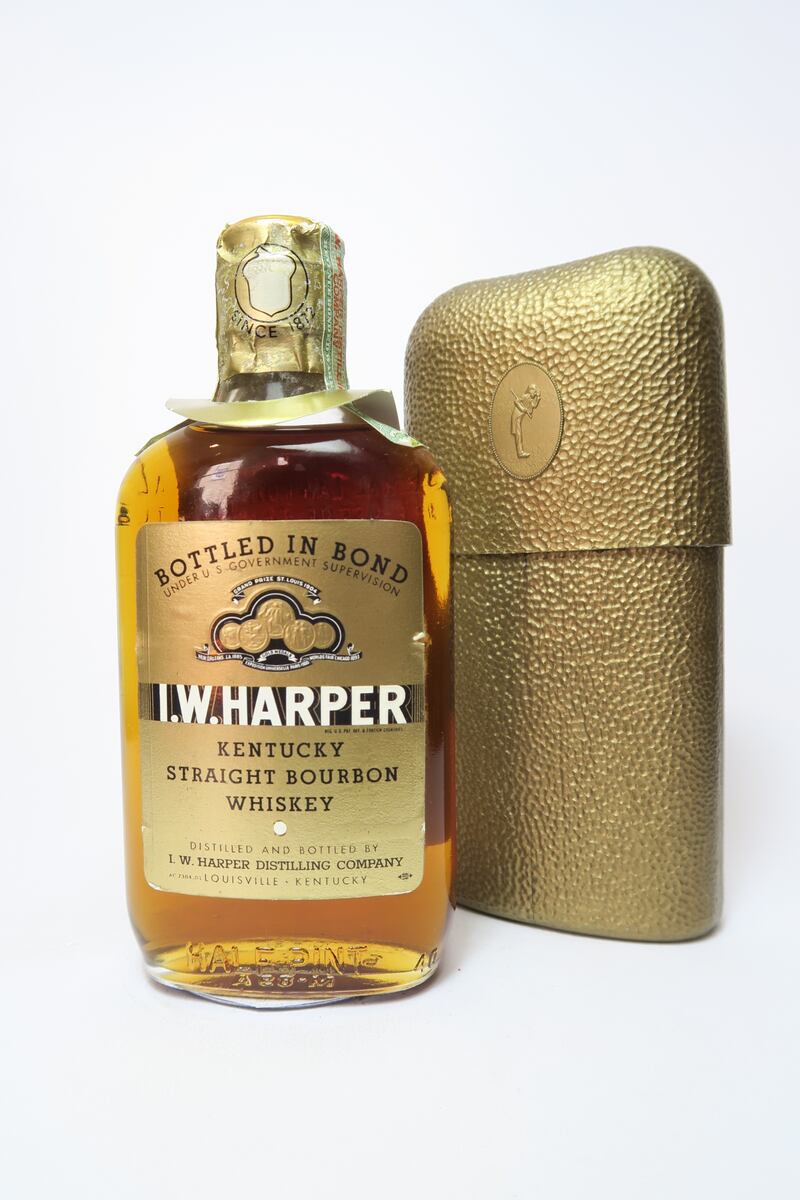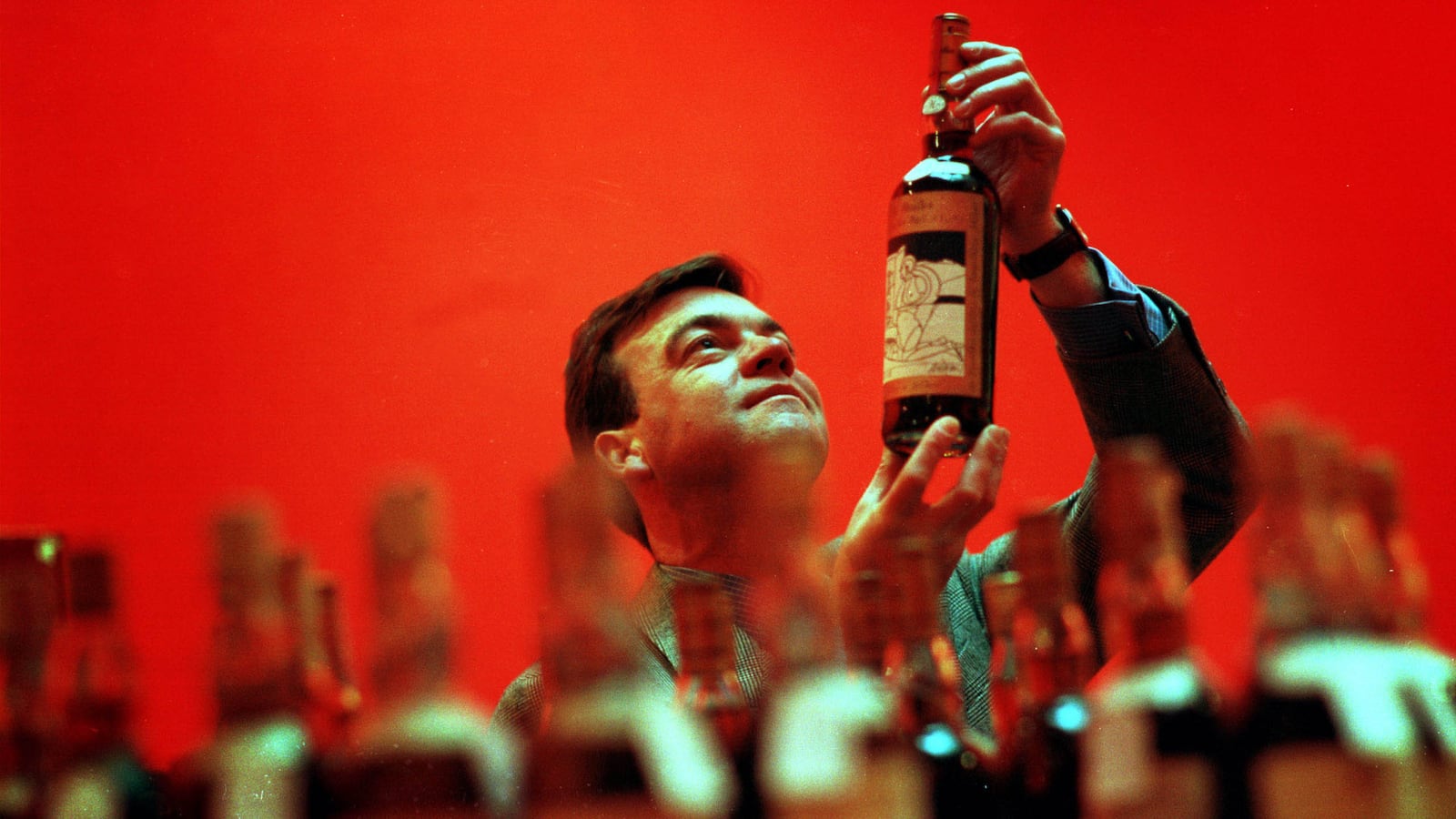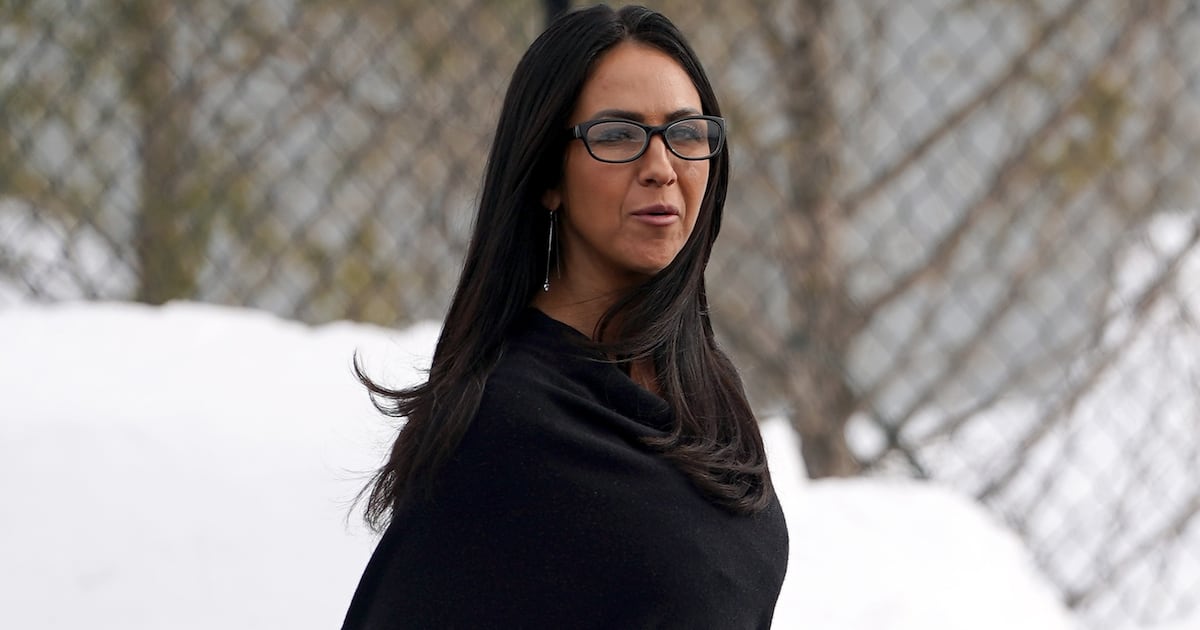In the fruit cellar of Salena Zito’s historic Pittsburgh house, next to the jars of canned food and baskets of apples and potatoes, is a case of liquor history.
Covered in a light layer of dust are nine bottles of Old Overholt Rye Whiskey that date back to the turn of the century. “As the story goes, the bottles I have were part of Andrew Mellon’s horde,” she told me. The soon to be Secretary of the Treasury under Warren G. Harding, owned the liquor brand that dates back more than 200 years. Right before Prohibition began he shipped 100 cases of whiskey to his house so he would be well supplied during the dry period. “To know this case made that getaway on the eve of Prohibition is fun,” says Zito, who is a Pennsylvania history buff and author of the forthcoming book The Great Revolt.
She received the bottles from Mellon’s descendent, Richard Scaife, who passed away in 2014. They would look through his family’s oversized scrapbook and several times he sent her to his basement to pick out a bottle to take home from the dozens of cases that remained in his possession.
Zito has never tasted this vintage whiskey (or any whiskey, for that matter) and never intends to open the bottles. What will she do with them? “I will probably pass them on to our grandchildren,” she admits.
The value of the vintage Old Overholt for Zito is that they remind her of Scaife, her friend and former boss. And she was genuinely surprised when I told her that the whiskey is quite collectable. In fact, several years ago a number of bottles from the same Mellon stash had been sold in a Christie’s auction in New York and fetched thousands.
While Zito’s collection is particularly special, over the last few years vintage spirits have stepped out of the dusty shadows of liquor cabinets across the country and into the spotlight. Bartenders and drinkers alike are buying and selling old bottles of whiskey, rum and even things like Chartreuse and gin. It’s now not unusual to see these special antiques on menus. I have sipped a so-called medicinal whiskey from Prohibition in a D.C. bar and a flight of old bourbons in a Louisville establishment. There is also a thriving trade of collectible bottles (new and old) on private social media forums.
Edgar Harden, who runs the aptly named Old Spirits Company, has been buying and selling vintage liquor since 2008. He stumbled into this business when he was called into evaluate a collection of claret wines in the UK. “I discovered vintage spirits lurking in a client’s cellar,” he recalls. In particular, he found a case of Gordon’s Gin from the 1960s. Out of curiosity, since he didn’t think it was valuable, he opened a bottle of the alcohol and found that it had mellowed out and developed a delicious citrusy note. He was able to sell the other 11 bottles in the box and found a new calling. “Wow, something is here,” he remembers thinking. Now his business is booming. “The rum world has just gone nuts,” he says and vintage bourbon is “out of control.”

The only problem is that the laws for the sale and purchase of vintage liquor haven’t caught up to the supply or the demand. While alcohol rules and regulations are overall byzantine, when it comes to old bottles it’s even more complicated. It’s so complex that I called my old friend Ryan Malkin, who is an alcohol attorney. “It changes dramatically from state to state,” says Malkin who is the principle attorney at Malkin Law. For instance, in Florida an individual can’t sell a bottle to a bar but in Massachusetts it can be done if you have a special permit and in Illinois if you have a license. “The bottom line is you have to be very careful,” says Malkin. Both the seller and the buyer can be subject to fines or prosecution.
So what do you do if you find an unopened vintage bottle of liquor in, say, your grandparents’ house? Well, if it’s rare and valuable you have a few options. You could try sell it yourself. (If you choose that route, Malkin suggests calling your state liquor authority to see what the law allows in your area.) You could also bring the bottle to an auction house. As of last summer, according to the Distilled Spirits Council of the United States, 23 states allowed wine auctions and just 13 of those jurisdictions allowed spirits sales.

Fortunately, the laws are changing to the benefit of spirits collectors. In Kentucky, as of January 1, the state has set forward rules defining what a vintage spirit is and the conditions it can be sold by an individual to a bar. “It would be great if other states looked at this as an example,” says Malkin. I think we can all drink to that.






